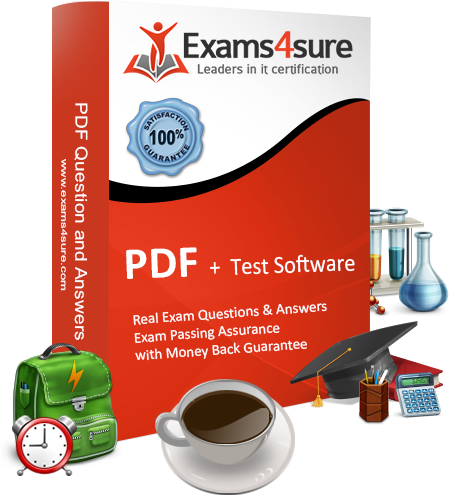|
|
Two Ways to Mastery: Learn with the PDF, Validate with the CFE-Fraud-Prevention-and-Deterrence Simulator. Know You're Ready and Pass with 100% Confidence. Your Complete Certified Fraud Examiner Success Package: Study Anywhere, Test Anywhere.

Certified Fraud Examiner - Fraud Prevention and Deterrence Exam
In Real Exam At Testing Centre
Exact Questions as in Real Exam Word by Word
ACFE CFE-Fraud-Prevention-and-Deterrence Questions and Answers
Which of the following statements regarding recommended vendor due diligence procedures is MOST ACCURATE?
For Its compliance program to be effective, an organization must perform procedures to ensure management hires only ethical Individuals who exercise a substantial measure of discretion In acting on the organization's behalf
Harry is an internal auditor with ABC Company. Harry's supervisor, the chief audit executive (CAE), is the fraud risk assessment sponsor and has tasked Harry with drafting an email communication regarding ABC's upcoming fraud risk assessment process. Which of the following is a best practice that Harry should implement?
Latest and Up-to-Date CFE-Fraud-Prevention-and-Deterrence dumps with real exam questions answers.
Get 3-Months free updates without any extra charges.
Experience same exam environment before appearing in the certification exam.
100% exam passing guarante in the first attempt.
15 % discount on more than one license and 25 % discount on 10+ license purchases.
100% secure purchase on SSL.
Completely private purchase without sharing your personal info with anyone.
Stop the stress of unpredictable exam. Our CFE-Fraud-Prevention-and-Deterrence practice test is engineered to simulate the exact format, pacing, and pressure of the real Certified Fraud Examiner exam. Go beyond simple Certified Fraud Examiner - Fraud Prevention and Deterrence Exam exam questions and answers; practice with CFE-Fraud-Prevention-and-Deterrence exam dumps in an interface that mirrors the actual ACFE test, building the muscle memory and confidence you need to pass on your first try.
Real Exam Simulation:
Our CFE-Fraud-Prevention-and-Deterrence practice exam interface is designed to look, feel, and function just like the real Pearson VUE testing software. From the timer countdown to the way you navigate between Certified Fraud Examiner - Fraud Prevention and Deterrence Exam exam questions, there will be no surprises on exam day.
Performance Analytics:
Get more than just a score. Receive a detailed breakdown of your performance by topic area. Identify your Certified Fraud Examiner certification weak spots and focus your study efforts efficiently.
Verified & Updated Questions:
Our team of ACFE experts continuously updates the question bank to ensure all content is relevant, accurate, and aligned with the latest CFE-Fraud-Prevention-and-Deterrence exam objectives.
Interactive Learning:
Read the explanation for every answer right or wrong. Understand the why behind each concept to solidify your Certified Fraud Examiner - Fraud Prevention and Deterrence Exam knowledge, not just memorize a answer.
Build Exam Stamina:
Taking our full-length, timed CFE-Fraud-Prevention-and-Deterrence practice test builds the mental endurance required to maintain focus and performance throughout the entire Certified Fraud Examiner exam.
The ACFE CFE credential stands for Certified Fraud Examiner. It's a globally recognized professional designation that signifies expertise in fraud prevention, detection, deterrence, and investigation. Earning the CFE credential demonstrates a high level of knowledge and skill in the anti-fraud field, leading to increased career opportunities and credibility.
The CFE exam tests knowledge in four core sections:
Yes, the Fraud Prevention and Deterrence section has a specific focus. It delves into understanding why people commit fraud and how to prevent it from happening in the first place. This includes studying areas like:
The Fraud Triangle is a model that identifies three key elements that can contribute to fraud:
Red flags are indicators that suggest a higher risk of fraud being present. They can be anomalies in financial statements, unusual employee behavior, or weaknesses in a company's control environment. Identifying and investigating red flags promptly can help prevent fraud or detect it early on.
Common examples of red flags include:
The CFE exam is typically 4 hours long and consists of multiple-choice questions. The exact number of questions can vary slightly from year to year.
Eligibility requirements for the CFE exam include having a bachelor's degree, relevant work experience in fraud or a related field, and meeting character, ethics, and continuing professional education requirements set by the ACFE. You can find the full details on the ACFE website.
Preventive frameworks are evaluated as Exams4sure explains segregation effectiveness.
Certified Fraud Examiner - Financial Transactions and Fraud Schemes Exam
Certified Fraud Examiner (CFE) - Investigation
Certified Fraud Examiner (CFE) - Law


TESTED 05 Mar 2026
Hi this is Romona Kearns from Holland and I would like to tell you that I passed my exam with the use of exams4sure dumps. I got same questions in my exam that I prepared from your test engine software. I will recommend your site to all my friends for sure.
Our all material is important and it will be handy for you. If you have short time for exam so, we are sure with the use of it you will pass it easily with good marks. If you will not pass so, you could feel free to claim your refund. We will give 100% money back guarantee if our customers will not satisfy with our products.